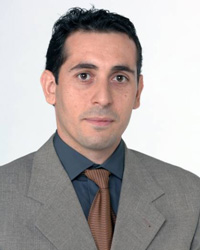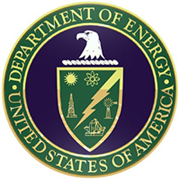 Serkan Akar (Electrical/Biomedical Engineering) About DOE Fellow: Accomplishments as a DOE Fellow: Mr. Akar’s Master’s thesis was based upon a second DOE project to develop a nano-biosensor for uranium immobilization at the Hanford Site, WA. In his first year of graduate school, Serkan was invited to conduct research at DOE’s Oak Ridge National Laboratory (ORNL) under the mentorship of Dr. Thomas G. Thundat (Group Leader of Nano-Bio Scale). The biosensor research experiment results were presented at the Waste Management Conference 2010 in Phoenix, AZ. Serkan has also published a paper on DOE-related biosensor research. He was granted an internship for the summer of 2010 at the prestigious Department of Energy Headquarters under the mentorship of Office of Management Systems and Analysis director Mr. Timothy Harms. |
| DOE Related Projects: |
Project 1
Rapid Deployment of Engineered Solutions for Environmental Problems at Hanford
Objective: To develop a biosensor for uranium immobilization in groundwater.
Leached uranium from stored tanks contaminates the groundwater in Hanford, WA. According to related research literature, polyphosphate injection immobilizes the leached uranium, however the amount of phosphate in the groundwater must be known to avoid eutrophication and phosphate insufficiency which can result in the death of existing vegetation. Serkan’s task is to develop a biosensor to immobilize uranium via determination of the correct amount of phosphate. An internship technical report was prepared for DOE-EM.
 Electrochemistry Setup
Electrochemistry Setup


Conventional three electrode system for electrochemistry setup

Graphs obtained from preliminary experiment at Oak Ridge National Lab (ORNL).

Designed and fabricated experimental cell for biosensor
Project 2
Solid Liquid Interface Monitoring (SLIM)
In the Hanford Site tank farm, 54 million gallons of highly radioactive waste is stored in a total of 177 underground single and double shell tanks. The current method for monitoring the tanks is via weight lowering into the tank which is hazardous, time consuming and costly. FIU and PNNL scientists have paired up to solve this matter in order to safely, accurately, remotely and less expensively monitor the tanks. Serkan’s task was to complete and test the electrical circuitry for the measurement robotic system of SLIM.
.jpg)
Serkan Akar presenting SLIM project during Ms. Diane Cochran’s (Former Deputy Assistant Secretary for Human Capital – U.S. DOE) visit to FIU-ARC

Serkan Akar (on left) presenting SLIM project during Ms. Diane Cochran’s (Former Deputy Assistant Secretary for Human Capital – U.S. DOE) visit to FIU-ARC
| Internships |
Waste Treatment Plant (WTP) / Pre-Treatment Engineering Platform (PEP)
Serkan was invited to PNNL to work on the remote and automated control of a waste treatment plant (WTP) under the mentorship of Dr. Gary Josephson for the summer of 2008. The project was conducted in a pretreatment plant (i.e., a mock-up model of the WTP). Mr. Akar developed a lab-based Programmable Logic Controller (PLC) station for the designers of the pretreatment plant. Serkan had an opportunity to work with prestigious scientists and engineers such as Sr. Engineer Jake Tucker, David Clark, and Patrick Valdez. An internship technical report was prepared for DOE-EM.
Waste Treatment Plant (WTP) lab-based automated control unit during the internship at DOE Pacific Northwest National Lab.
Another view from Waste Treatment Plant (WTP) lab-based automated control unit during the internship at DOE Pacific Northwest National Lab.

AutoCAD drawing of Pretreatment Plant (PTP) – A mock up model of WTP. The lab-based automated control unit is used for the testing of operation.
Conference Proceedings:

.JPG)
.JPG)